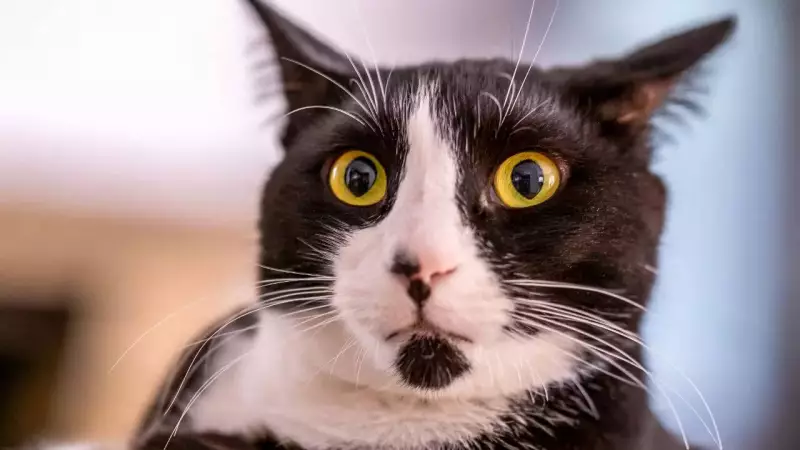
As your beloved cat enters its golden years, you might observe subtle shifts in its behaviour and daily habits that seem out of character. These gradual changes are not just a normal part of aging; they can be early indicators of Feline Cognitive Dysfunction (FCD), a condition strikingly similar to dementia in humans that typically affects cats over the age of ten.
Recognising these signs early is crucial. It empowers you to make thoughtful changes to your cat's environment, maintain consistent routines, and provide mental enrichment. Such proactive steps can significantly slow cognitive decline and enhance your cat's overall well-being, making a profound difference in its comfort and engagement during its senior years.
Early Warning Signs of Feline Dementia
Detecting dementia in your cat can be challenging because the initial changes are often very subtle and develop slowly over time. By paying close attention to your cat's daily habits, you can identify potential red flags of cognitive decline before they become severe. Early recognition allows for adjustments that reduce stress, prevent accidents, and help maintain your cat's cherished independence.
Key signs to watch for include:
- Disorientation: Your cat may seem lost or confused in familiar parts of your home, forget where the litter box or food bowl is located, or even get stuck in corners.
- Altered Social Interaction: A previously playful cat might lose interest in games with you or other pets, become withdrawn, or actively avoid attention it once sought.
- Disrupted Sleep Patterns: You may notice increased activity and vocalisation during the night, coupled with longer naps throughout the day.
- Decreased Grooming: A once-pristine coat may become dull, greasy, or matted due to a decline in self-grooming habits.
- Increased Vocalisation: Unusual or excessive meowing, particularly at night, can signal confusion, anxiety, or disorientation.
- Anxiety and Irritability: Your cat may be more easily startled, frustrated, or appear generally anxious due to its reduced ability to process familiar surroundings.
Being observant and noting even small behavioural changes helps distinguish permanent cognitive decline from temporary issues caused by stress or other illnesses.
Understanding the Causes of Cognitive Decline
Feline cognitive dysfunction is not an inevitable result of old age. Scientific research confirms that progressive neurological changes actively damage a cat's memory, learning, and behaviour. A pivotal study published in the European Journal of Neuroscience investigated the role of amyloid-beta protein in cats with FCD.
The researchers discovered that the accumulation of amyloid-beta protein increases the activity of glial cells, which then begin to 'engulf' and remove synapses. This process disrupts the vital neuronal connections that are essential for memory, learning, and spatial awareness.
This mechanism explains why your senior cat might gradually forget routines or seem confused. Other contributing factors include progressive neural degeneration and age-related vulnerability, where older cats are more susceptible to this type of brain damage. Interestingly, studying FCD also provides valuable parallels and insights into human conditions like Alzheimer's disease.
Management and Supportive Care for Your Cat
While there is no cure for FCD, a proactive and supportive care plan can dramatically improve your cat's comfort, mental engagement, and quality of life. The key is to focus on mental stimulation, unwavering consistency, and a stable, safe environment.
Effective ways to support your cat include:
- Environmental Enrichment: Introduce puzzle feeders, interactive toys, and regular play sessions to keep your cat's mind active and engaged.
- Consistent Routines: Stick to predictable schedules for feeding, playtime, and sleep. This reduces anxiety and helps your cat feel secure.
- Nutritional Support: Consult your vet about diets enriched with antioxidants, omega-3 fatty acids, and essential vitamins that support brain health.
- Veterinary Guidance: Your vet may recommend specific medications or supplements to help manage symptoms like sleep disruption or anxiety.
- Overnight Care: Ensure your cat has a calm, quiet, and safe place to sleep at night to minimise stress and confusion.
Essential Precautions for Cat Owners
Caring for a cat with dementia requires vigilance and a few key precautions. Schedule regular veterinary check-ups to monitor the condition's progression and rule out other health issues like kidney or thyroid disease that can mimic dementia symptoms. Make your home safer and more accessible by placing multiple litter boxes and feeding stations in easy-to-find locations.
Most importantly, provide predictable care with gentle handling. Keep a simple journal of your cat's behaviour, sleep, and eating habits to help your vet track changes. Always seek prompt veterinary attention for any sudden behavioural shifts, as these could indicate a new medical problem. Through patient, loving, and informed care, you can ensure your senior cat continues to live a comfortable and content life.






